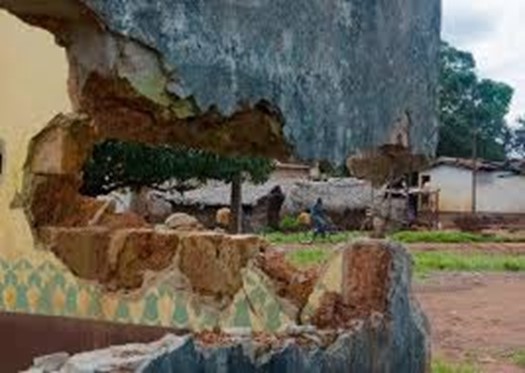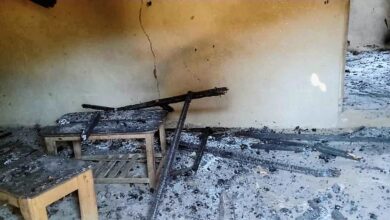MSF Extends Health Care To Victims Of Banagassou Attack In Central African Republic

On Sunday January 3, the coalition of non-state armed groups attacked and took control of Bangassou, a town in the southeast of the Central African Republic on the border with the Democratic Republic of the Congo.
During the day, Médecins Sans Frontières (MSF) teams transported and urgently treated 12 wounded at the Bangassou Regional University Hospital (HRUB). Its health structure has been supported by MSF since 2014.
On the eve of this attack, thousands of residents had fled the city and crossed the Mbomou river to seek refuge in Ndu, in the Democratic Republic of the Congo, where MSF is also supporting the local health center.
MSF is increasing its support to the health center with human resources, medicines and vaccines, and we are currently analyzing how to further strengthen our medical support to the displaced population in Ndu.
The attack in Bangassou is the latest in the context of a sharp deterioration in security linked to the electoral process in the Central African Republic. On December 27, the country held high-tension legislative and presidential elections, marked by numerous armed incidents in the country.
On December 28, several people were killed, including an MSF employee, when a public transport truck was targeted by gunfire in Grimari, near Bambari.
MSF, through Emmanuel Lampaert, MSF head of mission in CAR, has noted that its teams remain mobilized to provide humanitarian and medical aid to the population.
While some activities had to be reduced or suspended due to the significant increase in security risks for patients and staff, most services provided by MSF in the country continue to be provided.
Since December 21, more than 110 wounded have already been taken care of by MSF in Bossangoa, Bangui, Bangassou, Bambari and Batangafo.
This new deterioration in the security context further complicates the already extremely limited access of thousands of Central Africans to essential medical care, in a country plagued by a state of chronic medical emergency.
MSF calls on all armed actors to facilitate the work of healthcare workers to ensure the provision of timely medical care, to respect their obligations to protect civilians and humanitarian workers, to respect health facilities, ambulances, medical staff, as well as patients and their caretakers.
Support Our Journalism
There are millions of ordinary people affected by conflict in Africa whose stories are missing in the mainstream media. HumAngle is determined to tell those challenging and under-reported stories, hoping that the people impacted by these conflicts will find the safety and security they deserve.
To ensure that we continue to provide public service coverage, we have a small favour to ask you. We want you to be part of our journalistic endeavour by contributing a token to us.
Your donation will further promote a robust, free, and independent media.
Donate Here




